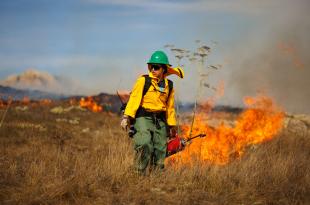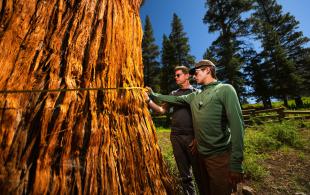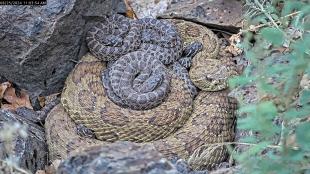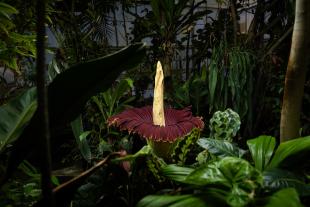Campus-Community Partnership Helps California Farms Adapt to Climate Change
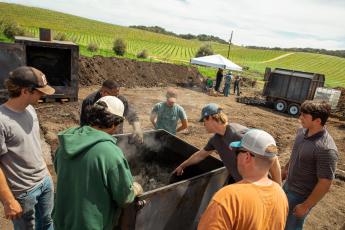
California is the breadbasket of America: with 26 million acres of farmland in the state, crops wind up in grocery stores all over the nation.
But climate change is making it harder — and more costly — for farmers to produce quality food consistently. The Sustainable Land Initiative (SLI), a project spearheaded by the Upper Salinas-Las Tablas Resource Conservation District (USLT) that takes an integrated approach to land and resource management, aims to dramatically accelerate California’s transition to climate-smart agriculture (CSA) practices.
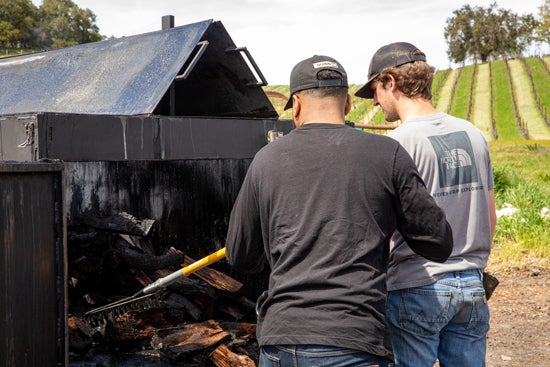
Cal Poly is collaborating on SLI through the Initiative for Climate Leadership and Resilience (ICLR), a hub for climate-focused service-learning projects, applied research, new curriculum and professional development. ICLR aims to educate the next generation of leaders in emerging careers that will make the state more resilient.
The SLI’s pilot program centers around helping local farms, ranches and forests secure timely funding to adopt climate-conscious techniques that reduce emissions, build climate and economic resiliency and increase overall food production. Experts say the approach is key to meet the state’s aggressive targets for natural carbon sequestration by 2030.
“I’m really excited about this project because it has statewide or national potential,” said ICLR director Erin Pearse. “There are some features of Cal Poly that make it suited to supporting this endeavor in a way that other schools just can’t match.”
Thanks to a $1.8-million grant from the University of California, Cal Poly researchers are partnering with resource conservation districts to facilitate the CSA project development process and aggregate grant funding bids. Those funds are important for farmers, who need equipment, expertise and labor as they switch to climate-resilient crop varieties, update water management strategies, apply cover crops or begin composting.
Using a platform developed by software provider cBrain, SLI’s pilot program has already demonstrated that CSA project development timelines can shrink from three years down to eight weeks, and the administrative burden on local resource conservation districts can go from 2,000 hours of work down to just 100.
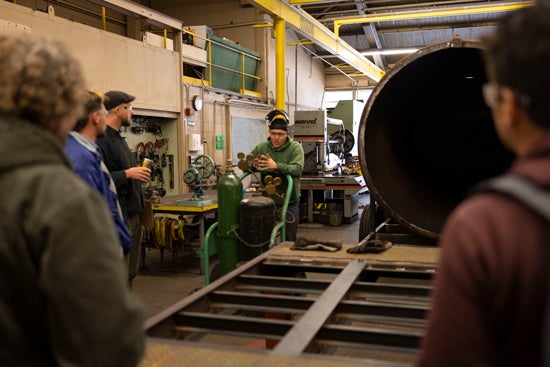
The SLI data platform assists with quantifying CSA benefits in terms of water usage, economic impact, and soil health. That data, researchers say, can provide a firm foundation for carbon credit or water credit markets and give clear guidance to policy makers who make funding and regulatory decisions to prioritize the right climate strategy in a given scenario.
The project includes a Learn by Doing experience in the BioResource and Agricultural Engineering Department. Students and industry partners involved in BRAE 421 and 422: Equipment Engineering are developing biochar generators and compost spreading equipment for resource conservation districts to lend or lease to local landowners investing in CSA practices.
Next, the SLI project is looking to scale beyond the Central Coast to help more landowners shift to CSA strategies with plans to alleviate more bottlenecks for the agricultural industry, including creating a circular economy for organic waste and accelerating permitting.
Want more Learn by Doing stories in your life? Sign up for our monthly newsletter, the Cal Poly News Recap!

